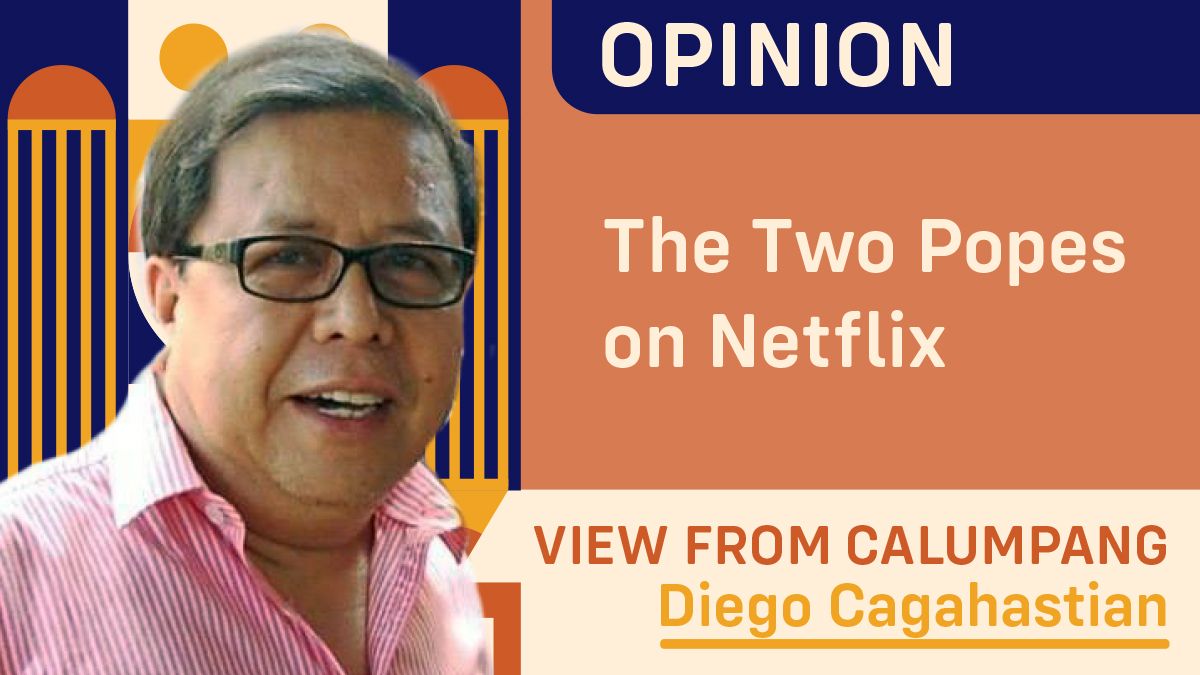IF you have the time and the inclination, and of course the needed subscription, I recommend watching the movie “The Two Popes” on Netflix. It is a biopic about the transition between Pope Benedict XVI and Pope Francis in 2013, set against the backdrop of a very contentious moment in the Catholic Church. As many faithful know, Benedict resigned the papacy in the wake of the sex scandals that happened before and during his term, and the conclave elected Francis from Argentina as the new pope, an icon of modernism in the Catholic Church.
The very fine movie which showcased the excellent acting performances of Anthony Hopkins and Jonathan Pryce allows the audience a peek into the character of both popes.
Meanwhile, the real Pope Francis spoke about democracy at an annual Roman Catholic convention on social affairs held in Triesta, Italy a couple of weeks ago. He said it is concerning that democracy is dying in many parts of the world, and the Pope minced no words in citing it, as he denounced populist politics and what he called “the dross of ideology.”
The 87-year-old Pontiff observed that throughout the globe, many people felt excluded from democracy, with the poor and the weak left to fend for themselves.
“It is evident that democracy is not in good health in today’s world,” he said, denouncing polarization and partisanship. He specifically mentioned that the “crisis of democracy” afflicted various nations.
“Let us not be deceived by easy solutions. Let us instead be passionate about the common good,” the pope said, highlighting the damage caused by political “corruption and illegality”. He stressed that it was important to teach children the importance of democratic values, warning that “indifference is a cancer of democracy.”
“Why are we not scandalized in the face of rampant evil, life being humiliated, labor issues, the sufferings of migrants? Why do we remain apathetic and indifferent to the injustices of the world?” he said.
In a true democracy, there is respect for human dignity and people have freedom to act, speak and think freely as long as it does not stop others from doing the same. There is equality before the law and institutions are in place to resolve different views and conflicts peacefully.
Francis spoke on the day France was holding a parliamentary run-off election, and as democracy is largely about elections, Pope Francis lamented: “I am concerned about the small number of people who went to vote. Why is it happening?”
Aside from commenting about few voters, Pope Francis took a swipe at how democracy is practiced in countries and territories outside of the Vatican, where he holds absolute-monarchical powers as ruler and head of state, aside from being head of the Catholic Church.
It is easy for the Pope to point a finger at non-democratic practices outside the walls of the city-state, as other heads of state may also be critical about the way governance is practiced in North Korea and Myanmar. Tolerance of dissent and respect for freedom of expression are fundamental attributes of a democratic state, and so we wish that the same level of tolerance be applied on bishops and other church factotums who have been critical of the leadership’s dispensation.
As it is, Francis finds it hard to explain why his “infallible” dispensation ordered Archbishop Carlo Maria Vigano, former Ambassador to the United States of the Holy See, to be excommunicated on the basis of his being a vigorous critic of the papacy.
The Pope, at 87, might still learn a thing or two about statesmanship in foreign relations, and fairness in the affairs of state and basic governance.
#WeTakeAStand #OpinYon #OpinYonColumn #ColumnbyDiegoCagahastian #ViewfromCalumpang
